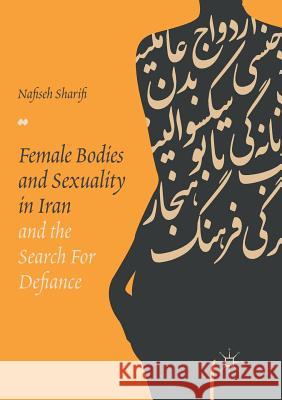Female Bodies and Sexuality in Iran and the Search for Defiance » książka
topmenu
Female Bodies and Sexuality in Iran and the Search for Defiance
ISBN-13: 9783319869742 / Angielski / Miękka / 2019 / 197 str.
Kategorie BISAC:
Wydawca:
Palgrave MacMillan
Język:
Angielski
ISBN-13:
9783319869742
Rok wydania:
2019
Wydanie:
Softcover Repri
Ilość stron:
197
Waga:
0.26 kg
Wymiary:
21.01 x 14.81 x 1.14
Oprawa:
Miękka
Wolumenów:
01
Dodatkowe informacje:
Wydanie ilustrowane











